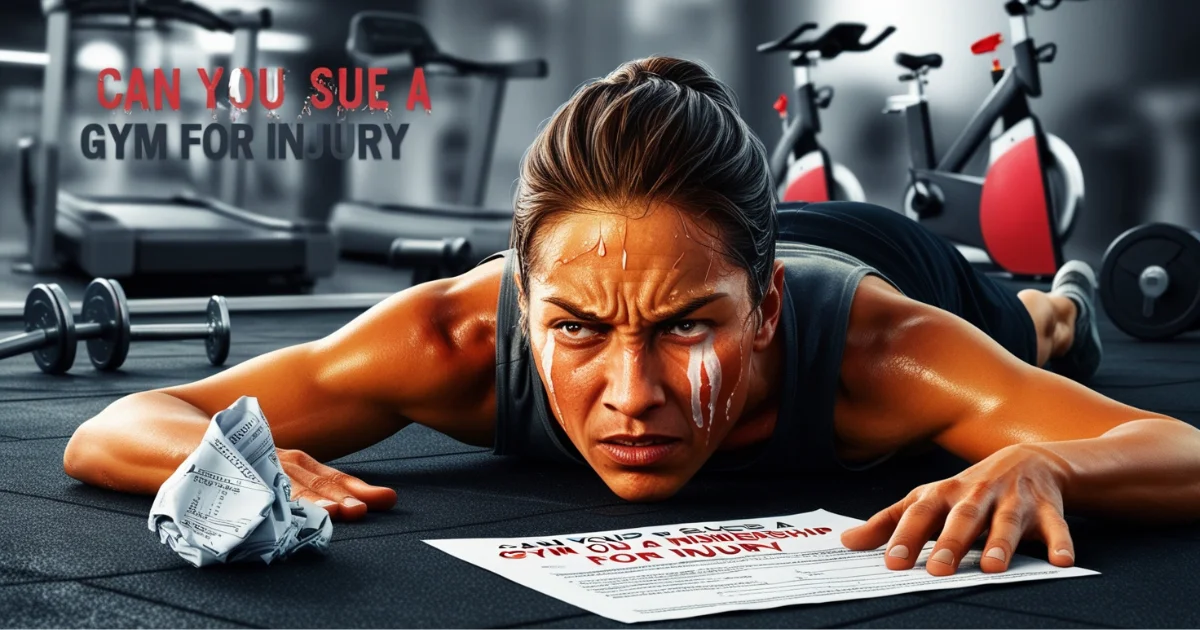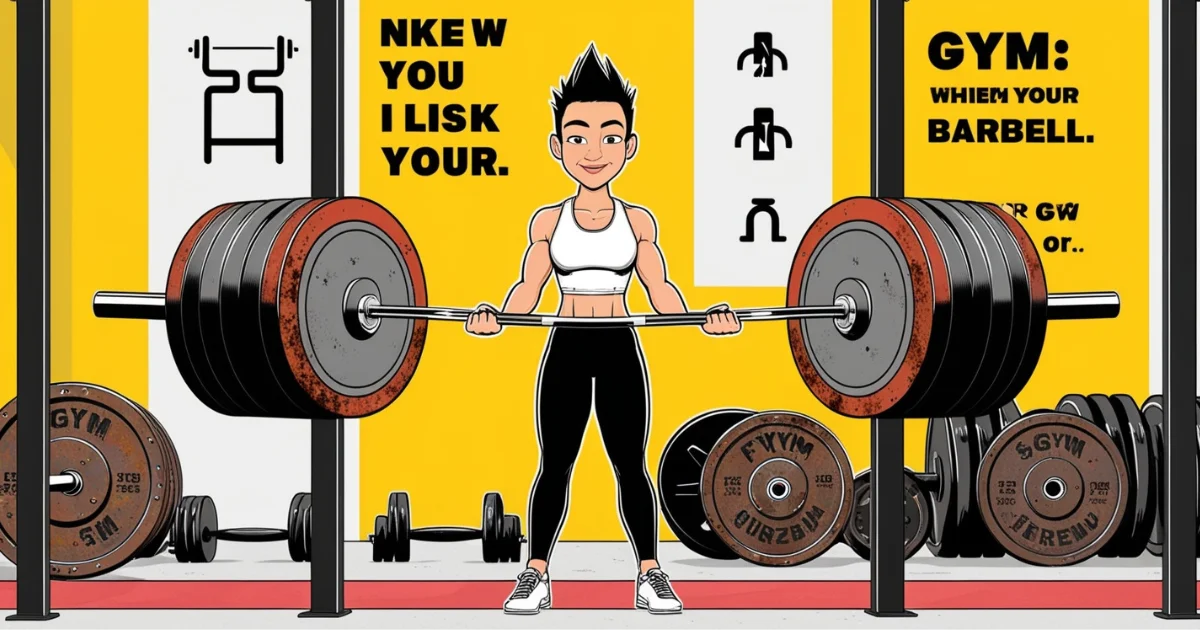Can You Sue a Gym For Injury A Comprehensive Guide in 2024
Going to the gym is a great way to stay fit and healthy, but accidents can happen. From slipping on wet floors to injuries caused by faulty equipment, there are many ways you can get hurt while working out. So, what happens when you suffer an injury at the gym? Can you sue the gym for compensation? In this guide, we’ll break down everything you need to know about using a gym for injury in 2024.
Understanding Gym Injuries
Gyms can be a place of both physical transformation and potential danger. Whether you’re lifting weights, running on the treadmill, or participating in a fitness class, there are risks involved. Common gym injuries include:
Slipping on wet floors in locker rooms or showers
Falling due to uneven surfaces or loose flooring
Injuries from faulty or improperly maintained gym equipment
Sprains and strains from improper use of weights or machines
Overexertion injuries during fitness classes
While these injuries can happen to anyone, it’s important to determine who is responsible when they occur.
Liability and Responsibility of Gyms

Gyms have a legal responsibility to provide a safe environment for their members. This means ensuring equipment is well-maintained, floors are clean and dry, and trainers are qualified to offer advice. When a gym fails to meet these obligations, it may be held liable for any injuries that occur.
However, simply getting hurt at the gym doesn’t automatically make the gym responsible. To hold the gym accountable, you need to prove that the gym was negligent in some way. This could mean they didn’t properly maintain equipment, failed to clean up a spill, or allowed unsafe conditions to persist.
Signing a Gym Waiver: What Does It Mean?
Most gyms require members to sign a liability waiver before joining. These waivers are designed to protect the gym from lawsuits if someone gets injured while working out. By signing the waiver, you agree to take responsibility for certain risks that come with using the gym’s facilities.
However, signing a waiver doesn’t necessarily mean you can’t sue the gym. Waivers often have limitations, and in some cases, they might not hold up in court.
Can You Sue a Gym After Signing a Waiver?
Even if you signed a waiver, you can still sue the gym under certain circumstances. For example, if the injury was caused by the gym’s negligence or misconduct, the waiver may not protect them. Common exceptions include:
Faulty or poorly maintained equipment
Dangerous conditions that the gym failed to fix
Untrained or negligent staff members
In these cases, the waiver might not shield the gym from legal action.
Types of Injuries You Can Sue For
You can sue for a variety of injuries that happen in a gym. These include:
Physical injuries: Injuries from slipping, tripping, or falling; accidents with gym equipment; or being struck by a weight.
Emotional injuries: In some cases, emotional distress or trauma caused by unsafe gym environments may also be grounds for a lawsuit.
The key is whether the gym’s negligence directly caused your injury.
Negligence: The Key Factor in Gym Injury Lawsuits
To successfully sue a gym, you need to prove that the gym was negligent. In legal terms, negligence means the gym failed to act with reasonable care, which directly resulted in your injury. Examples of gym negligence include:
Not fixing broken equipment
Failing to clean up spills or hazards
Allowing unqualified trainers to provide instruction
Proving negligence is crucial to winning a gym injury lawsuit.
Proving Negligence in a Gym Injury Case
To prove negligence, you’ll need strong evidence. This includes:
Photos or videos of the accident scene
Medical records documenting your injuries
Witness statements from people who saw the accident
Proof that the gym knew about the hazard but didn’t take action
Building a solid case can be challenging, which is why hiring a lawyer is often a good idea.
When Is the Gym at Fault?
A gym may be at fault if they fail to maintain a safe environment. Examples include:
Slippery floors in high-traffic areas
Broken or outdated equipment
Poorly trained staff giving incorrect advice
In these cases, the gym’s negligence can be demonstrated, making them liable for your injuries.
When Is the Gym NOT at Fault?
In some situations, the gym may not be responsible for your injury. For example, if you used equipment improperly or ignored safety instructions, the gym may argue that the accident was your fault. Gyms are also generally not responsible for injuries caused by normal workout risks, such as muscle strain from overexertion.
Suing for Equipment Malfunction
If faulty gym equipment caused your injury, you could sue. However, the question of who is liable can get complicated. Sometimes, the gym might be responsible for not maintaining the equipment properly. In other situations, the equipment manufacturer could be at fault for producing a defective product.
What To Do Immediately After a Gym Injury
If you get injured at the gym, take these steps:
Report the injury to gym staff immediately. Make sure they document it.
Take photos of the accident scene, including any equipment involved.
Get medical attention immediately, even if the injury seems minor.
Collect witness statements from anyone who saw the incident.
Keep records of all medical treatments and expenses.
The more evidence you gather, the stronger your case will be if you decide to sue.
How Much Compensation Can You Receive?
The amount of compensation you can receive depends on several factors, including the severity of your injuries and the gym’s level of negligence. Common types of compensation include:
Medical expenses: Covering hospital bills, physical therapy, etc.
Lost wages: If you miss work due to your injury.
Pain and suffering: Compensation for emotional and physical distress.
A lawyer can help estimate the potential value of your claim.
Hiring a Personal Injury Lawyer

If you’re considering suing a gym, it’s a good idea to consult with a personal injury lawyer. They can:
Review your case and assess whether you have a valid claim
Help gather evidence and build a strong case
Negotiate with the gym’s insurance company or legal team
A lawyer will increase your chances of getting the compensation you deserve.
Conclusion
Injuries at the gym can happen to anyone, but that doesn’t mean you’re always responsible for your injury. If the gym was negligent in maintaining a safe environment or failed to fix dangerous conditions, you may have grounds for a lawsuit. While signing a waiver can limit your legal options, it doesn’t protect the gym in every situation. By understanding your rights and consulting with a personal injury lawyer, you can navigate the legal process and potentially secure compensation for your injuries.
Relevant Post:
You May Like:
- 151 Bold Cycling Team Names For Your Events in 2024
- 125 Game-changing Bocce Ball Team Names for 2024
- 162 Best Flag Football Team Names in 2024
- 207 Best Volleyball Team Names That Are A Hit in 2024
- 273 Badminton Team Names: Smash Your Way to Victory!
- Top 276 Game-Changing Tennis Team Names for 2024
- 209 Best Softball Team Names Trending in 2024



